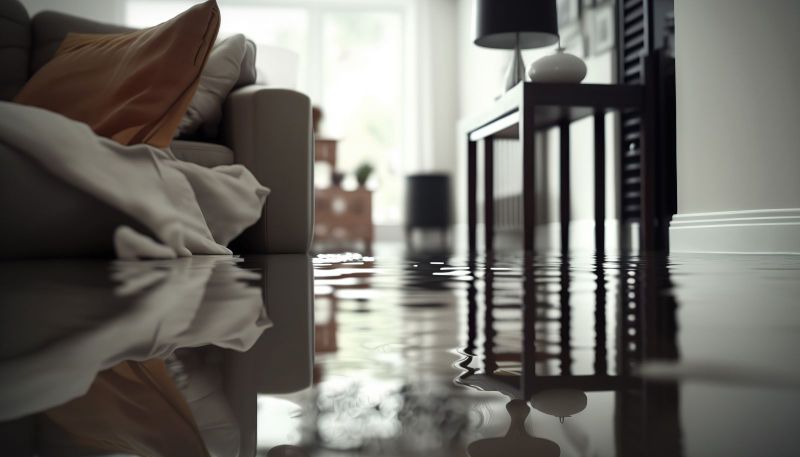Water damage can wreak havoc on homes and properties, causing significant structural damage, health risks, and financial burdens. Understanding the dangers associated with water damage and knowing how to effectively deal with it are crucial for homeowners and property managers alike. In this article, we will delve into the fundamentals of water damage, its potential hazards, and provide valuable insights on how to mitigate and address this common issue.
What is Water Damage?
Water damage refers to any destruction or harm caused by the intrusion of water into a property. It can result from various sources such as burst pipes, plumbing leaks, roof leaks, natural disasters like floods or storms, or even human negligence like leaving taps running. Water damage can occur in residential or commercial settings, affecting everything from the foundation and walls to furniture, appliances, and personal belongings.
Understanding the Dangers:
- Structural Damage: Water has the ability to compromise the structural integrity of a building. Prolonged exposure to moisture can weaken the foundation, rot wooden structures, cause cracks in walls, and promote the growth of mold and mildew. These issues, if left unaddressed, can lead to costly repairs and potentially render the property unsafe.
- Health Risks: Stagnant water and excessive moisture create an ideal breeding ground for harmful microorganisms such as mold and bacteria. Exposure to these contaminants can trigger allergies, respiratory problems, and other health issues. Additionally, water damage can also lead to the release of toxic substances, such as asbestos or lead, if present in the affected area.
- Electrical Hazards: Water and electricity do not mix well. When water infiltrates electrical systems or appliances, it can pose a significant risk of electrocution or fire. It is essential to prioritize safety and turn off the main power supply when dealing with water damage to avoid such hazards.
How to Deal with Water Damage:
- Act Quickly: Time is of the essence when dealing with water damage. The longer water sits, the more extensive the damage becomes. As soon as you notice signs of water intrusion, such as dampness, leaks, or flooding, take immediate action to stop the source and remove the water.
- Ensure Safety: Before entering an area affected by water damage, ensure it is safe to do so. Turn off the main power supply if water has come into contact with electrical systems. Use protective gear like gloves, masks, and boots to minimize the risk of exposure to contaminants.
- Document the Damage: Take photographs or videos of the affected areas and any damaged belongings. This documentation will be valuable for insurance claims and the restoration process.
- Contact Professionals: Engage the services of water damage restoration professionals. They have the expertise, equipment, and knowledge to thoroughly assess the damage, extract water, dry the affected areas, and restore the property to its pre-damaged condition. Prompt professional intervention can prevent further damage and reduce the risk of mold growth.
- Address Mold and Mildew: If water damage has led to mold and mildew growth, it is crucial to address it promptly. Mold can spread rapidly and pose serious health risks. Professional mold remediation specialists can assess and safely remove mold, ensuring a clean and healthy environment.
- Prevent Future Water Damage: Once the immediate water damage has been addressed, take proactive measures to prevent future occurrences. Regularly inspect and maintain plumbing systems, install proper drainage, seal any cracks or leaks, and consider waterproofing vulnerable areas.
Water damage is a significant concern for homeowners and property managers. Understanding the dangers associated with water damage and taking swift, appropriate action are key to minimizing its impact. By acting quickly, prioritizing safety, and seeking professional help, you can mitigate the risks, protect your property, and restore your home or building to its former state. Remember, prevention is the best defense against water damage, so be proactive in safeguarding your property from potential sources of water intrusion.

